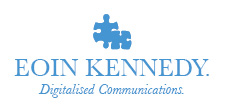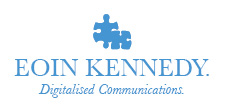Start Stop and Social Media
I started this post a number of weeks ago. In retrospect it should really have been two separate posts which it will now be but instead of posting it, I let it lie in my drafts folder until I ‘had time’ to think it through properly. Big no no. Missing self set blogging deadlines and waiting for free time to post really kills blogging activity.
Anyway, the deeper I delve into social media the more I see the gaps between traditional PR operations and how people are trying to integrate it into social media.
Social media poses lots of challenges for PR people, some of which I covered in previous posts. One I see increasing in importance is the start stop nature of PR.
Start Stop
In media relations a lot of time is in planning, reporting, researching and writing and outside of dealing reactively with media queries and keeping relationships alive the actual contact and engagement time with media can sometimes be a relatively small part (the reliance on email has made this even worse). Sometimes you can be touch with the same journalists a number of times in a day and then not speak to them for months. This is not really an issue in traditional media. The press machinery moves on and contact with a news, sports or business desks have little or no crossover and not being part of the daily debate and process of pulling newspapers together does have a disproportionate bearing on your standing.
This is somewhat different in the online work. If you have not blogged or tweeted for a while, people do notice and its up there for all to see. Try tracking the last time someone has contacted a newsdesk versus the last time someone has responded to a tweet or posted on boards.ie. This has other implications than the obvious staleness and relevance issues. A lot of PR people see social media as extension of the media process and only update it when they have a press release or other national newsworthy announcements to make. This start stop is relatively acceptable for national media but in social media jumping head long into conversations after months of absence can appear odd or worse rude. Trends, topics, influencers all move at lightning speed online and an absence of a couple of days can make one almost irrelevant.
The obvious answer is that PR people should spend more time online and engage more but social media could suck all the time available as there is a endless source of relevant distractions. However there are some simple things that people can do to overcome the start stop including:
- Plan social media activity beyond the traditional PR milestones – dont allow weeks to build up with no input.
- Build an extensive editorial calendar of proactive content.
- Decide on a daily or other social media routine. Post at a certain time, check for replies at a certain time, response at a certain time. This sets expectations and enforces a schedule.
- Create thematic days – one day could be photos from the archive for example.
- Set aside time for reading and engaging in other peoples posts, tweets and online conversations.
- Most importantly – be programmatic and stick to it.
People naturally go through peaks and troughs of activity but when you leave a community for too long you loose: relevance with others in the network, touch of what is really happening, links and connections with others. I am always amazed by how quickly online communities innovate and change. One thing for certain is that being an expert in a platform now does not mean you will be any better than an enthusiastic beginner in a few months time. The secret lies in managing the time input and building it as a central part of PR programmes.



No comments